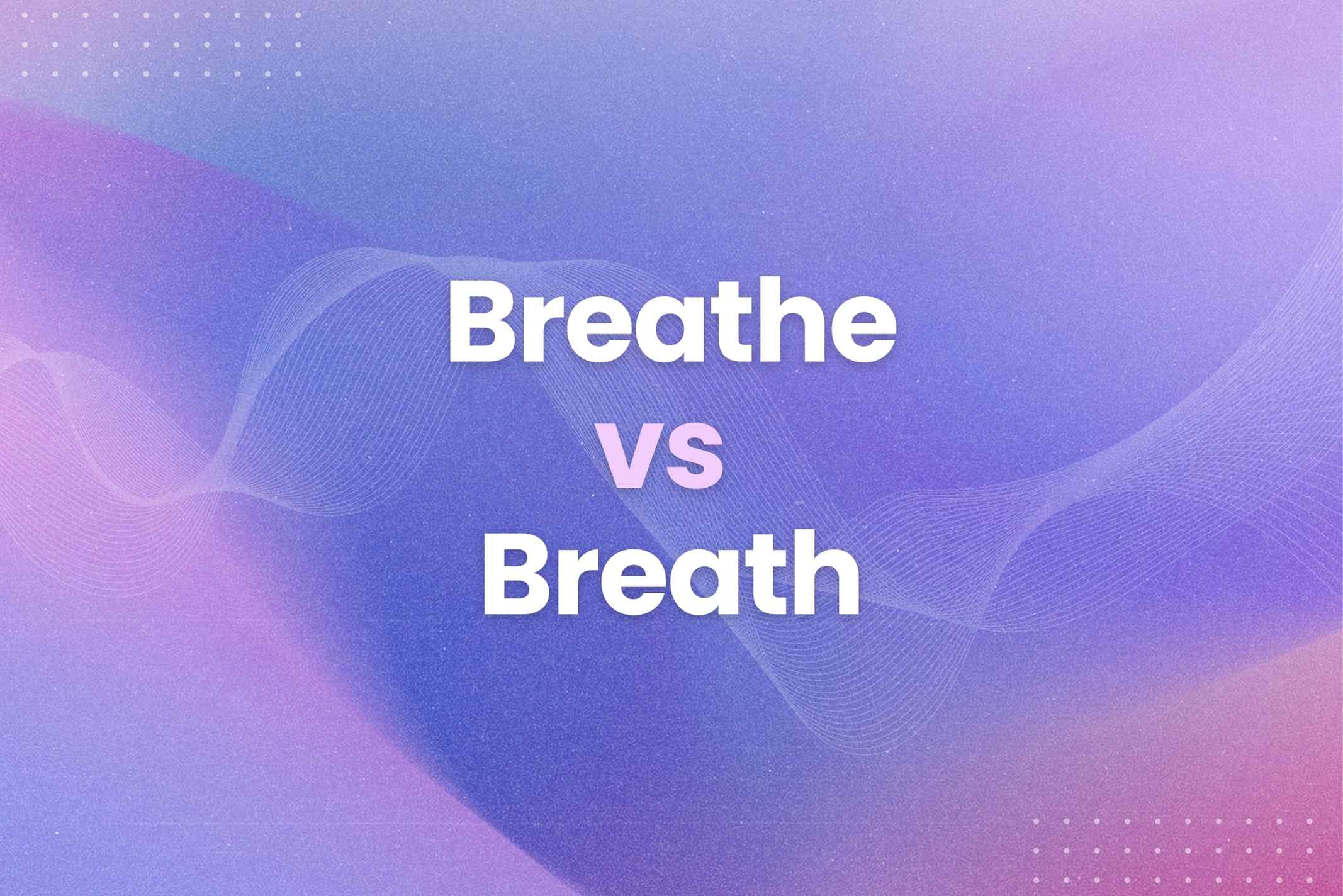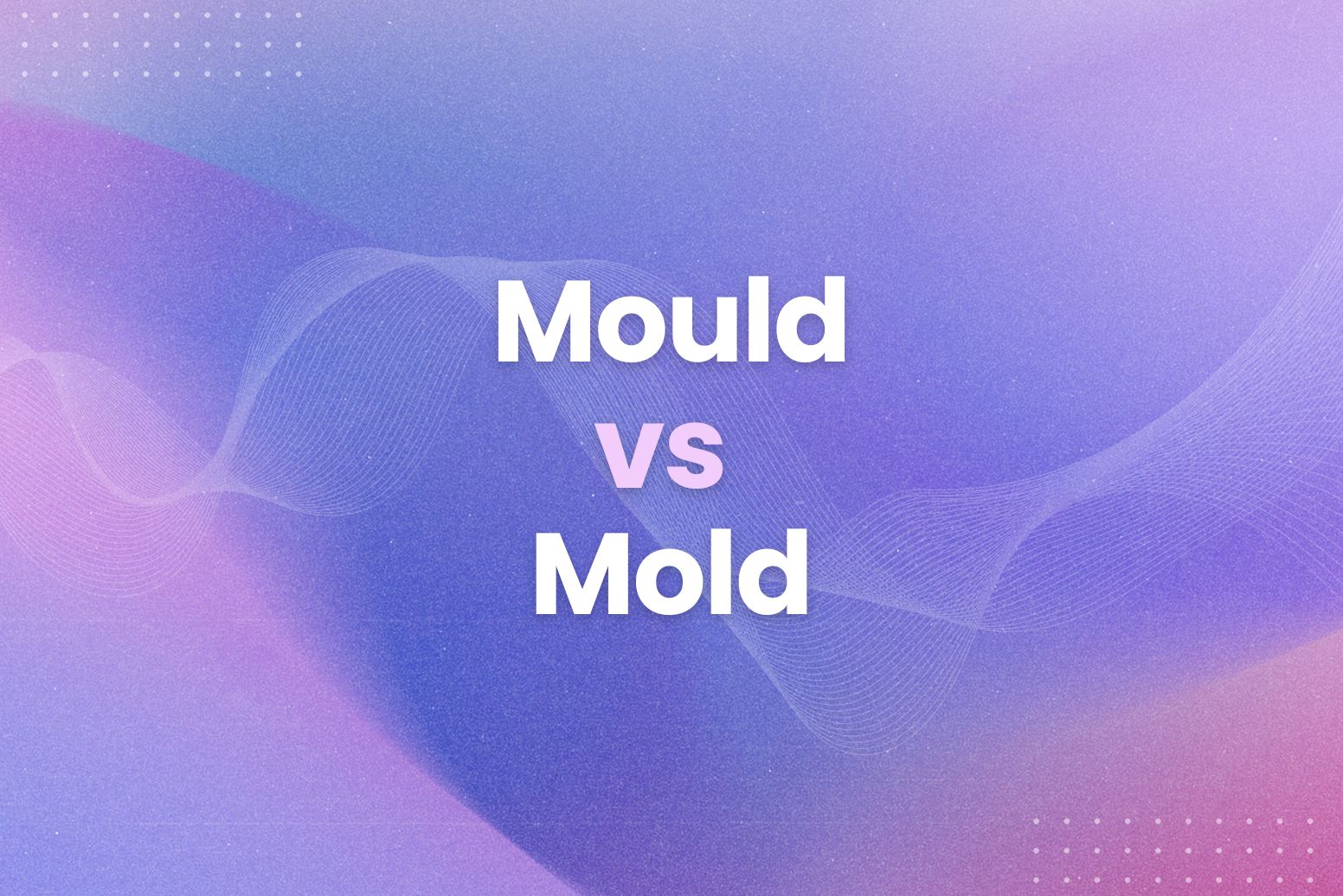Confused about the difference between breathe vs breath? You’re not alone. These two words often trip people up. But fear not, grammar enthusiasts. We’re here to clear the air and help you use these words correctly every time.
In this guide, we’ll explain the difference between breathe vs breath in a way that’s easy to understand. We’ll also share some handy tips for remembering which is which.
Here’s what we’ll cover:
- A simple explanation of “breathe” and “breath”
- Common mistakes to avoid
- Helpful tips for remembering the difference
Get ready to breathe easily and write with confidence.
Breathe vs. Breath: What’s the Difference?
“Breathe” and “breath” may sound alike, but they play different roles in a sentence. Think of it this way:
- Breathe is a verb, an action word. It means to take air into your lungs and then let it out. Like this: “Take a deep breath and breathe slowly.”
- Breath is a noun, a thing. It’s the actual air you inhale and exhale. For example: “His breath fogged up the window.”
See? Not so complicated after all. However, as with many things in the English language, there are some tricky situations where these two words can cause confusion.
But first, let’s look at a quick tip to help you remember the difference:
Pro Tip: Breathe has the word “eat” in it. We need to breathe to eat.
Tricky Situations
Sometimes, figuring out whether to use “breathe” or “breath” can feel like a guessing game. But don’t worry, we’ve got your back. Here are a few examples where these words can be tricky:
- Figurative language: We often use “breathe” figuratively. For example, “The old house seemed to breathe with every gust of wind.” We’re not saying the house literally has lungs, are we? Nope. We’re just creating a vivid image.
- Idioms: English is full of idioms that use “breath” and “breathe.” For example, “Don’t hold your breath” means don’t wait too long for something to happen. And “a breath of fresh air” describes something new and refreshing.
- Word combinations: Sometimes, “breath” combines with other words to form new words, like “breathtaking” or “breathless.”
These tricky situations can be a real pain, right? But with a little practice, you’ll be using “breathe” and “breath” like a pro in no time.
And hey, if you ever get stuck, just remember Arvin. This awesome AI browser extension can help you with your grammar anytime, anywhere. Just highlight the text you’re unsure about, and Arvin will give you instant feedback.
Common Mistakes to Avoid (and How to Fix Them)
Even with the best intentions, we all make mistakes from time to time. That’s how we learn, right? Here are some common blunders people make with “breathe” and “breath”:
- Firstly, using “breath” when you should use “breathe.” For example, “I need to breath deeply.” ❌ The correct sentence is: “I need to breathe deeply.” ✅
- Then, using “breathe” when you should use “breath.” For example, “Take a deep breathe.” ❌ The correct sentence is: “Take a deep breath.” ✅
- Lastly, misspelling “breathe” as “breath” or vice versa. This one’s easy to do, especially when you’re typing quickly. But remember, “breathe” has an extra “e” at the end.
When you’re not sure which word to use, try replacing it with a synonym. If “inhale” or “exhale” makes sense, use “breathe.” If “air” makes sense, use “breath.”
Never Mix Up “Breathe” and “Breath” Again With These Tricks
Let’s ensure you never confuse breathe vs breath again. These tricks are so simple that you’ll wonder why you ever struggled in the first place.
- The “eat” trick: Remember, “breathe” has the word “eat” in it. We need to breathe to eat.
- The vowel trick: “Breathe” is the verb, and it has a long “e” sound at the end. Think “breeeeeathe.” This might help you remember that it’s the action word.
- The noun trick: “Breath” is the noun, and it’s shorter than “breathe.” Nouns are often shorter than verbs, so this can be a helpful visual cue.
- The sentence trick: If you’re still unsure, try this: Can you replace the word with “inhale” or “exhale”? If so, use “breathe.” Can you replace it with “air”? If so, use “breath.”
Write down these tips on a sticky note and put it somewhere you’ll see it often. Repetition is key to remembering new information.
And, of course, don’t forget about Arvin. This handy tool can help you with all sorts of grammar conundrums, not just breathe vs breath. It’s like having a grammar guru by your side 24/7.
Breathe Easy With Arvin
You’ve learned the difference between “breathe” and “breath.” Go out there and write with confidence.
Here are the key takeaways:
- “Breathe” is a verb (action word), and “breath” is a noun (thing).
- Remember the “eat” trick, the vowel trick, the noun trick, or the sentence trick.
- Use Arvin to double-check your grammar and avoid mistakes.
Speaking of Arvin… this awesome tool can do so much more than just help you with breathe vs breath. It can also help you with other tricky grammar concepts, like subject-verb agreement, punctuation, and even sentence structure.

Plus, it can help you write better, faster, and with more confidence. So why not give it a try? You might just be surprised at how much it can improve your writing.
FAQs
The correct word depends on how you’re using it. “Breathe” is a verb (action word), and “breath” is a noun (thing). For example, you might say, “I need to breathe deeply” or “Take a deep breath.”
Breathe: “It’s important to breathe deeply during yoga.”
Breath: “His breath was visible in the cold air.”
It’s “the air I breathe.” Remember, “breathe” is the verb, and you need a verb to describe the action of taking in air.
It’s “able to breathe.” Again, you need the verb form here.
It’s “hold my breath.” In this case, “breath” is the noun, referring to the air in your lungs.






